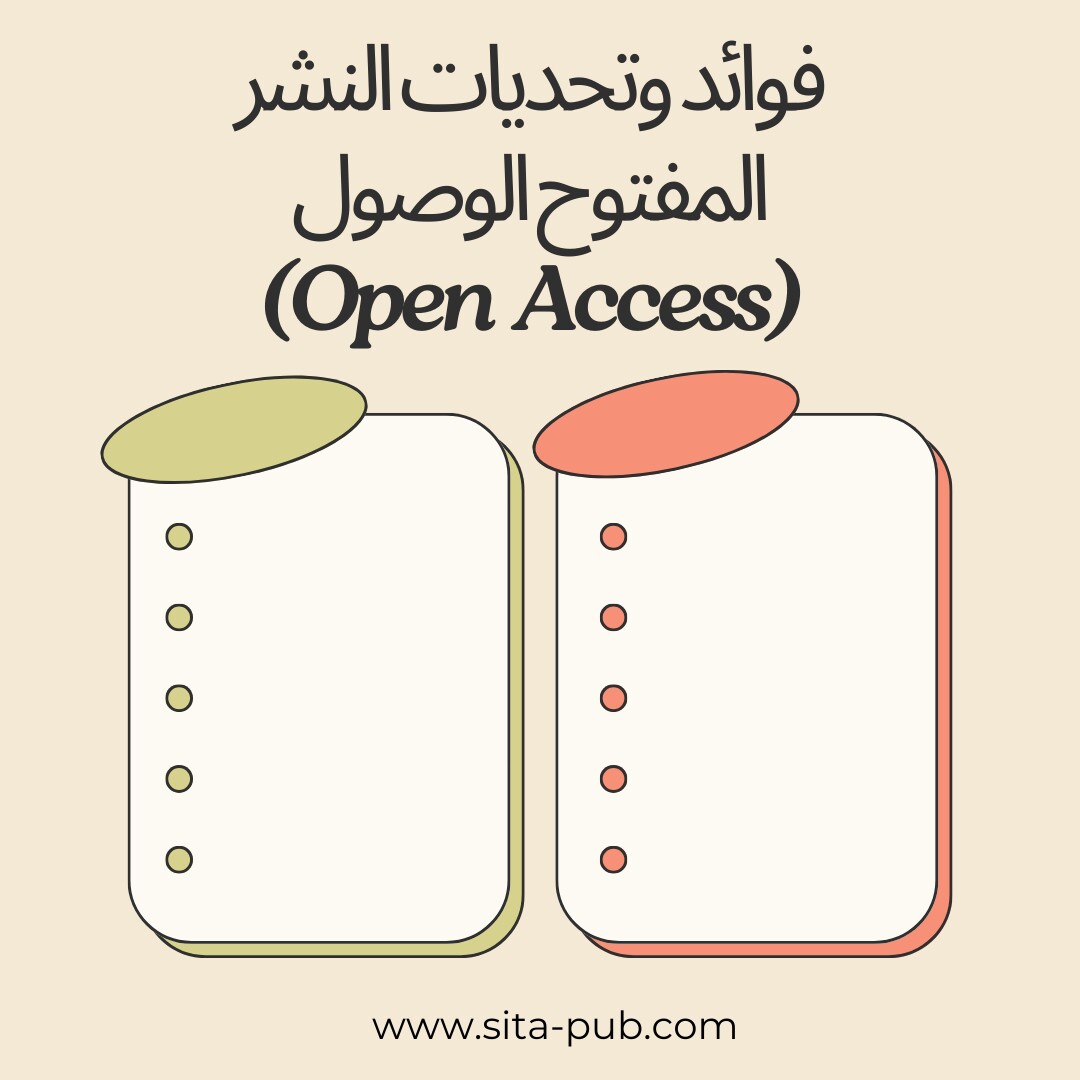فوائد وتحدیات النشر المفتوح الوصول


یقدم النشر المفتوح العدید من الفوائد المهمه للباحثین، والمؤسسات، والمجتمع.
تکون منشورات النشر المفتوح متاحه مجانًا عبر الإنترنت، مما یُلغی الحواجز المالیه ویسمح لأی شخص لدیه اتصال بالإنترنت بالوصول إلى نتائج الأبحاث والاستفاده منها. یمکن أن یؤدی هذا الوصول المعزز إلى توسیع کبیر فی مدى تأثیر الأبحاث، وتعزیز انتشار المعرفه ومشارکتها.
یسهل النشر المفتوح التعاون بین الباحثین عبر الحدود الجغرافیه والتخصصات المختلفه. من خلال مشارکه نتائج الأبحاث بسهوله، یمکن للعلماء البناء على أعمال بعضهم البعض، مما یؤدی إلى ابتکار أسرع وتولید معرفه جدیده.
یمکن الوصول إلى منشورات النشر المفتوح واقتباسها بسرعه أکبر مقارنه بتلک المنشوره فی المجلات التقلیدیه المعتمده على الاشتراک. هذا النشر السریع للنتائج البحثیه یمکن أن یسرّع التقدم العلمی ویؤدی إلى حلول أسرع للتحدیات العالمیه.
یجعل النشر المفتوح نتائج الأبحاث أکثر وصولًا للجمهور العام، مما یعزز تفاعلًا أکبر مع العلم ویشجع على اتخاذ قرارات مستنیره. یمکن أن یؤدی ذلک إلى دعم عام أکبر للبحث العلمی وفهم أفضل لدور العلم فی المجتمع.
رغم فوائده العدیده، یواجه النشر المفتوح العدید من التحدیات التی ینبغی التعامل معها.
تفرض العدید من مجلات النشر المفتوح رسومًا على المؤلفین لتغطیه تکالیف مراجعه الأقران، والتحریر، والنشر. یمکن أن تشکل هذه الرسوم عبئًا مالیًا کبیرًا، خاصهً للباحثین من البلدان النامیه أو من ذوی الموارد المحدوده.
عادهً ما تطلب مجلات النشر المفتوح من المؤلفین الاحتفاظ بحقوق النشر لأعمالهم، مع منح المجله ترخیصًا للنشر والتوزیع. قد یسبب ذلک ارتباکًا فیما یتعلق بحقوق ومسؤولیات المؤلفین والناشرین.
أدى النمو السریع لمجلات النشر المفتوح إلى إثاره القلق حول آلیات ضمان الجوده. یُعد ضمان صرامه ونزاهه الأبحاث المنشوره أمرًا ضروریًا، ومن المهم وجود عملیات مراجعه دقیقه ومحکمه للحفاظ على المعاییر العالیه.
تُبذل جهود متعدده للتعامل مع التحدیات المرتبطه بالنشر المفتوح.
یتم استکشاف نماذج تمویل متنوعه لدعم النشر المفتوح، بما فی ذلک اشتراکات المؤسسات، وتمویل المؤلفین، والمنح الخیریه. بالإضافه إلى ذلک، تهدف مبادرات مثل "خطه S" إلى جعل النشر المفتوح هو النموذج الافتراضی للأبحاث المموله من القطاع العام.
یتم تطویر اتفاقیات واضحه وموحده لحقوق النشر والتراخیص لضمان احتفاظ المؤلفین بحقوقهم المناسبه، مع تمکین الناشرین من توزیع الأبحاث بفعالیه.
تعتمد المجلات المفتوحه المحترمه على عملیات مراجعه أقران صارمه وتلتزم بمعاییر أخلاقیه عالیه. کما یوفر دلیل المجلات المفتوحه الوصول (DOAJ) قائمه منسقه لأفضل المجلات ذات الجوده العالیه فی هذا المجال.
هل أنت باحث أو أکادیمی تبحث عن نشر عملک فی مجلات محکمه ذات تأثیر عالٍ؟

تقدم سیتا خدمات نشر أکادیمی موثوقه، حیث تُرشد الباحثین خلال عملیه النشر المعقده، وتضمن أن ینال بحثک الرؤیه والاعتراف الذی یستحقه. ثق بـ سیتا لتکون شریکک فی نجاحک الأکادیمی. اتصل بنا الیوم لتتعرف على مجموعه خدمات النشر والمجلات المفتوحه.
إذا کان لدیک أی أسئله، استفسارات، أو ترغب فی معرفه المزید عن خدماتنا، فلا تتردد فی التواصل معنا. فریقنا المخصص مستعد لمساعدتک.